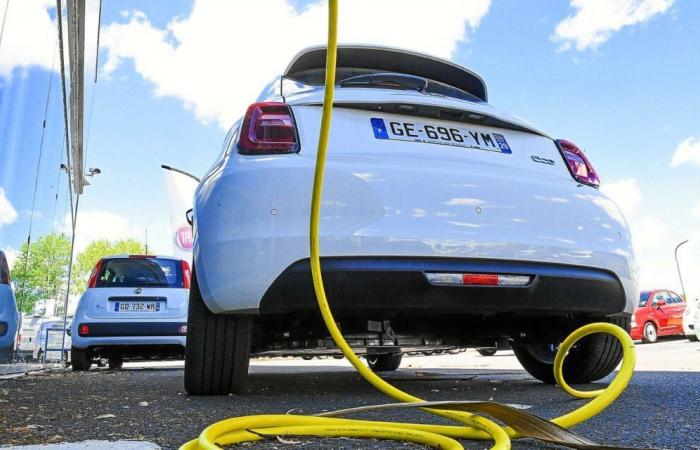Currently worth 4,000 euros (7,000 euros for the lowest-income households), will the ecological bonus for the purchase of an electric car be reduced to the bare minimum in 2025? In the midst of debates on the state budget for next year, one thing is certain: the government wishes to cut into the overall envelope (1.5 billion euros in 2024) which makes it possible to finance ecological bonuses, social leasing and conversion bonus. It was noted that the latter, also called “scrapping bonus”, which allows the exchange of a very polluting vehicle for a more recent and virtuous model, will be abolished, “to concentrate on the ecological bonus”, argues -one at the Ministry of the Economy.
Social leasing deemed too expensive
For the rest, the arbitrations have not yet been made and they will give rise to decrees which could be published by the end of the year. Where are the discussions? “We know that the government's plan is to reduce the envelope to 700 million euros in 2025, which constitutes a very significant reduction,” Marc Mortureux, general director of the Automobile Platform (PFA), told Télégramme. The one who represents the automobile industry in France says he “fears that the reduction in the ecological bonus will be much more severe than going from 4,000 to 3,000 euros, the trajectory that we had envisaged”.
“We are discussing with the government to make the bonus sacred, at a level which is sufficient for the greening of the automobile fleet to be accelerated,” assures a spokesperson for the Mobilians union, formerly the National Center for Automotive Professions.
As for social leasing, initiated this year, and which has allowed 50,000 customers to access electric cars for, often, less than 100 euros per month, professionals in the sector agree that its “configuration must be renewed, because it was very expensive.”
The German precedent
The concern is obvious among car manufacturers and dealers, in the hypothesis of an ecological bonus reduced or which would no longer be reserved only for modest households, while it is the wealthiest who equip themselves the most with ” wattures”: “We risk sharply reducing purchases of electric vehicles,” fears Marc Mortureux. “It would be embarrassing to remove this assistance because it is useful for switching a new wave of people, following that of “early adopters” (early customers), towards electric cars,” analyzes Éric Champarnaud, co-founder of the consulting firm C -Ways. The expert notes, however, “that by opening the bonuses to everyone, we also give them to people who do not need them to buy an electric car”.
The French auto sector is well aware of the consequences of the end of the bonus in Germany which led to a collapse in the market share of electric cars, falling from 18% to 13% in one year. In France, the year 2024 is already looking more gloomy than expected, with a market share stagnating at 17%.
“Our industry is under pressure”
However, French manufacturers have invested billions in the development of electric models with a view to the end of the sale of new thermal cars expected in Europe by 2035. “Our industry is under considerable tension with this very difficult transformation to carry out, while Chinese competition is very strong,” recalls Marc Mortureux. “If the bonus is reduced, this will further favor Chinese manufacturers, whose cars are much cheaper, even if the European Union has implemented taxes on their import,” adds Mobilians.
European manufacturers are also required to sell enough electric cars to improve their carbon footprint, otherwise they will have to pay very heavy fines next year. To meet the objectives, the market share of electric cars should reach around 22% in Europe in 2025, much more than the 13% expected for this year 2024.
According to the PFA, the difficulties in the electric market are not the fault of manufacturers, who are “playing the game”: “The problem comes from demand. The consumer, due to the price of cars, is not yet ready, spontaneously, to switch to electric at the pace that Europe has decided to impose on manufacturers. The arrival of cheaper models such as the Renault R4 and R5 or Citroën ë-C3 could change the situation even if the price gap between a thermal model and its electric equivalent remains significant.
Will this market need to be maintained for much longer? “We do not at all want it to be subsidized in the long term, it is not healthy, we are rather aiming for a gradual trajectory of reduction in aid,” replies Marc Mortureux. “Two or three years of subsidies will undoubtedly still be necessary for the electric car to be well established in the streets and minds, for the purchase price to have fallen sufficiently and the second-hand market to be well established,” judges Eric Champarnaud.
Manufacturers also hope to see new devices appear to encourage companies that are poor performers in this area to electrify their automobile fleets. The second-hand market, which could accelerate the democratization of electric vehicles, is particularly nourished by these professional models.
France






